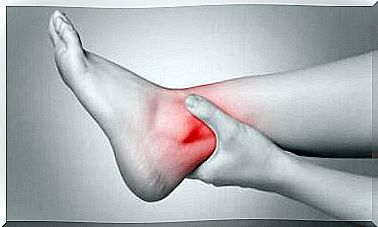Deksketoprofen – What Is It Used For?

Dexketoprofen is a widely used drug today. It belongs to the class of non – steroidal anti-inflammatory drugs, which consists of the group of anti-inflammatory and analgesic drugs.
It can be found on the market in the form of tablets and gel. In the following article, we will explain its features and effects.
Dexketoprofen and is for medical use
Overall, many people use dexketoprofen to relieve headaches. Like other NSAIDs, the purpose of this drug is to reduce inflammation and discomfort. It can also help lower your fever.
However, dexketoprofen is more effective in treating some types of pain. These are:
- Tooth aches.
- Headaches. This drug is used to treat mild headaches and migraines.
- Menstrual pain or dysmenorrhea. These conditions appear during menstruation in women. Painful menstruation can cause anxiety, fatigue, nausea, abdominal pain and even fainting.
- Muscle pain and myalgia. They may be due to various factors. These include injuries or blows, overexertion, and the like. These pains also manifest themselves due to poor posture or strenuous effort.
- Pain in the abdomen and stomach pains.
- Back pain (including lower back pain and cervical pain). It can manifest itself due to poor ergonomics or changes in muscles and joints.
Mechanism of action
This substance:
- It interferes with inflammatory processes and pain sensation.
- Regulates and maintains body temperature.
- It interferes with the secretion of the gastric mucosa, a layer of the stomach that produces mucus that protects the organ.
- Maintains blood pressure.
- The smooth muscles contract, which include internal organs and blood vessels.
Side effects
As with all medications, the use of dexketoprofen has some side effects. These are:
- Nausea and vomiting
- Dizziness
- Headache
- Changes in bowel movements, such as constipation or diarrhea
- Flatulence
- Heartburn or stomach pain
- Sleep disturbance
- Dry mouth
- Fatigue or general weakness
- Palpitations
- Rashes
As mentioned above, prostaglandins play a role in protecting the stomach. Therefore, inhibiting its production reduces said protection. Thus, the stomach is exposed to damage by foreign substances. This can lead to heartburn and stomach upset.
Contraindications and precautions
Doctors do not recommend the use of this drug in some cases.
You should not take this medication if:
- You are pregnant or breastfeeding.
- You suffer from cardiovascular disease.
- You suffer from kidney or liver failure (or a malfunction in these organs).
- You are hypersensitive or allergic to non-steroidal anti-inflammatory drugs.
- You have a gastrointestinal ulcer or Crohn’s disease.
- You have unhealthy habits such as drinking alcohol, smoking excessively, or consuming toxic substances such as drugs.
- You take anti-inflammatory drugs, pain relievers and the like regularly.
We also recommend that you see a doctor if you have any of the symptoms listed above. You should also do this if you have had allergic reactions associated with taking other NSAIDs.
You should also know that you should wear sunscreen while taking any anti-inflammatory drug, especially dexketoprofen. This is because this medicine may be hypersensitive to sunlight. Applying it can lead to spots and itchy skin.









